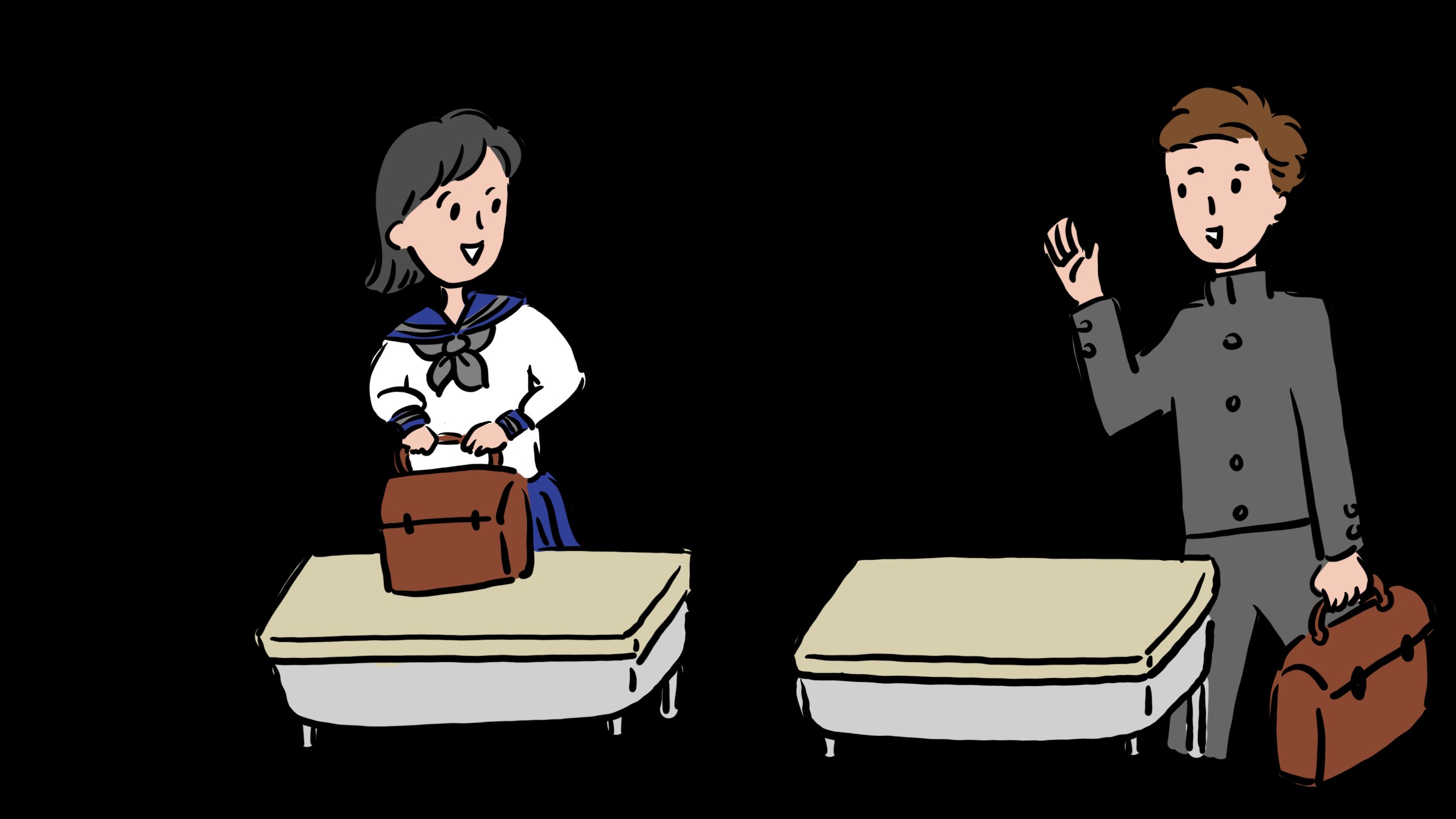日本語では朝のあいさつは「おはよう」あるいは「おはようございます」である。
In Japanese, ohayou or ohayou gozaimasu is a morning greeting.
。
Good morning ohayou gozaimasu can be used with anyone, but ohayou is not polite and should not be used with older people or superiors.
。
During the day, say konnichiwa, and at night, say konbanwa.
。
However, among these greetings, you only use ohayou gozaimasu with friends.
。
Furthermore, many people also use ohayou gozaimasu in the afternoon.
。
For most people, the afternoon is the end of the day, but for those who work in the afternoon, it feels like the beginning of the day, just like the morning.
。
For example, when you work a part-time job in the afternoon and meet your coworker for the first time that day, you use this expression.
。
Even in the evening, it marks the beginning of a new workday.
。
When studying Japanese, you usually start with greetings first.
。
However, you probably cant learn these things from a textbook.
。
「おはよう」は 友だちに 言います。
Ohayou is a word you use with friends.
。
During the day, say konnichiwa, and at night, say konbanwa.
。
午後から 仕事を する 人は、初めて 会ったときに「おはよう」と 言います。
これから 仕事が 始まるからです。

